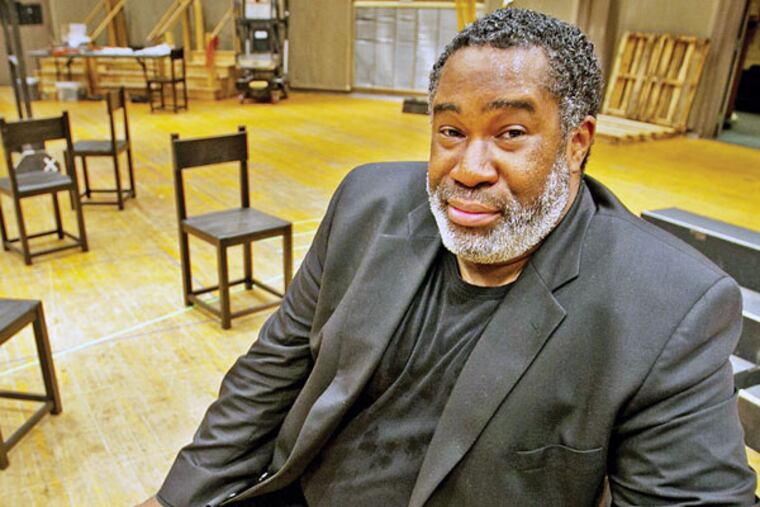Look who's back in the local aria!
HAILED IN Europe and the U.S., Mount Airy's homegrown opera star Eric Owens returns to the Philly stage on Friday, singing in Opera Philadelphia's "Don Carlo" at the Academy of Music.

HAILED IN Europe and the U.S., Mount Airy's homegrown opera star Eric Owens returns to the Philly stage on Friday, singing in Opera Philadelphia's "Don Carlo" at the Academy of Music.
The great bass loves coming home - and that's no wonder, since four of the city's top musical institutions were his stepping stones to international fame.
Owens began to study piano (and then the oboe) at Settlement Music School in Germantown at age 6. He studied voice at Temple University's Boyer College, where he won a major student competition sponsored by the Philadelphia Orchestra. Graduate work at Curtis Institute was his springboard to a major - and busy - career.
He also has a secret past as a Daily News contributor.
Owens performed last month in the title role in Washington National Opera's "The Flying Dutchman," then zipped back to Philly to receive Temple's Boyer College Tribute Award and sing a recital, attended by his mom and lots of family. Daily News arts contributor Tom Di Nardo caught up with him last week during rehearsals for his role as King Philip II in "Don Carlo."
Q Why did you choose this role to sing?
This is a role I've been wanting to do. It's arguably Verdi's best opera and - for me - the brass ring of bass roles.
I'm so grateful that Opera Philadelphia wanted to do it with me. This is my hometown company.
Q What is it like to portray King Philip, who senses his son Carlo is in love with the Queen?
He spends the opera suspecting it, not knowing. And maybe he doesn't really want to know. Every tiny thing makes him suspect even more, and the frustration of not knowing drives him crazy.
It really helps to have such a comfort level about this production because of working with singers I've known for years.
Q The bass is usually the heavy. Wouldn't you enjoy some lighter roles?
Yes, because I'm usually either the father, clergy guy, priest, devil or bad guy.
But I also did some comic Rossini roles - two with Larry Brownlee, who will be here soon playing Charlie Parker. I'm having a career that I'm so grateful for. It's all gravy now.
Q How difficult was it to sing two new roles back to back?
It was a pretty intense experience, and there's another after this! (In May he sings as Debussy's Prince Golaud with the Chicago Symphony Orchestra.)
"Dutchman" is the Wagner that's most like Verdi, a little more like organized yelling.
Singing Verdi is a joy and a different set of physical demands - relentless, like doing a hundred situps. The other day in rehearsal, I had to stop for a moment because the music was so very beautiful that I was simply overwhelmed.
Q You taught a master class in Philadelphia last month. How important are outreach activities like that?
I enjoy it more than getting up on stage! In master classes, I learn more than they do.
And I encourage them to search their soul, because this life - this lifestyle - is not for everybody.
Q What are your musts when you're here, and what are your best memories of Philly?
Of course, I go to Mount Airy to see my mom and family, but I still haven't made it to the Barnes Foundation.
I've sung with orchestras in Berlin, Chicago, Boston, the BBC, but whenever I sing with the Philadelphia Orchestra I'm like a little kid, I still get nervous.
When I was at Central High, some of us interviewed Maestro Muti for the Daily News.